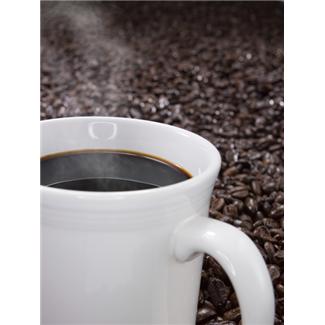Ok, I know there are many of you out there who cannot live without coffee. Me? I am not a coffee person at all, I prefer chocolate, the melt in your mouth kind. I stopped drinking caffeinated tea during my first pregnancy. To this day I rarely drink it. Because I don’t drink caffeinated teas or sodas I cannot say that I am addicted to caffeine. Just chocolate. Chocolate. Cadbury chocolate bars to be exact. Yum. But I digress here. This post is about caffeine and infertility. Have you ever wondered about the affects of caffeine on your fertility or pregnancy? Well a new study has come out that you may be interested in. It has researched why caffeine can reduce fertility in women. Pretty interesting stuff, I must say.
Why Caffeine Can Reduce Fertility in Women
Below is an excerpt from the full study, which was recently published in the British Journal of Pharmacology. I have not received a full copy to know how large the study, however, what Professor Sean Ward from the University of Nevada School of Medicine found was caffeine reduces muscle activity in the Fallopian tubes that carry eggs from a woman’s ovaries to her womb. “Our experiments were conducted in mice, but this finding goes a long way towards explaining why drinking caffeinated drinks can reduce a woman’s chance of becoming pregnant,” says the Professor.
Human eggs are microscopically small, but need to travel to a woman’s womb if she is going to have a successful pregnancy. Although the process is essential for a successful pregnancy, scientists know little about how eggs move through the muscular Fallopian tubes. It was generally assumed that tiny hair-like projections, called cilia, in the lining of the tubes, waft eggs along assisted by muscle contractions in the tube walls.
Professor Ward studied the tubes of mice. He and his team discovered that caffeine actually stops the actions of specialised pacemaker cells in the walls of the tubes. These cells coordinate tube contractions so that when they are inhibited, eggs can’t move down the tubes. Surprisingly these muscle contractions play a bigger role than the beating cilia in moving the egg towards the womb.
“This provides an intriguing explanation as to why women with high caffeine consumption often take longer to conceive than women who do not consume caffeine,” says Professor Ward.
Discovering the link between caffeine consumption and reduced fertility has benefits. “As well as potentially helping women who are finding it difficult to get pregnant, a better understanding of the way Fallopian tubes work will help doctors treat pelvic inflammation and sexually-transmitted disease more successfully,” says Professor Ward. It could also increase our understanding of what causes ectopic pregnancy, an extremely painful and potentially life-threatening situation in which embryos get stuck and start developing inside a woman’s Fallopian tube.
——————————————————————————–
This study is published in the British Journal of Pharmacology.
Full citation: Inhibitory effect of caffeine on pacemaker activity in the oviduct is mediated by cAMP-regulated conductances. R. E. Dixon, S. J. Hwang, F.C. Britton, K. M. Sanders and S. M. Ward. British
Journal of Pharmacology. 2011; DOI: 10.1111/j.1476-5381.2011.01266.x
URL upon Publication:
http://dmmsclick.wiley.com/click.asp?p=17403712&m=41409&u=975093
About the Author: Sean M. Ward, D. Phil, is based at the University of Nevada School of Medicine in Reno, Nevada, USA.
